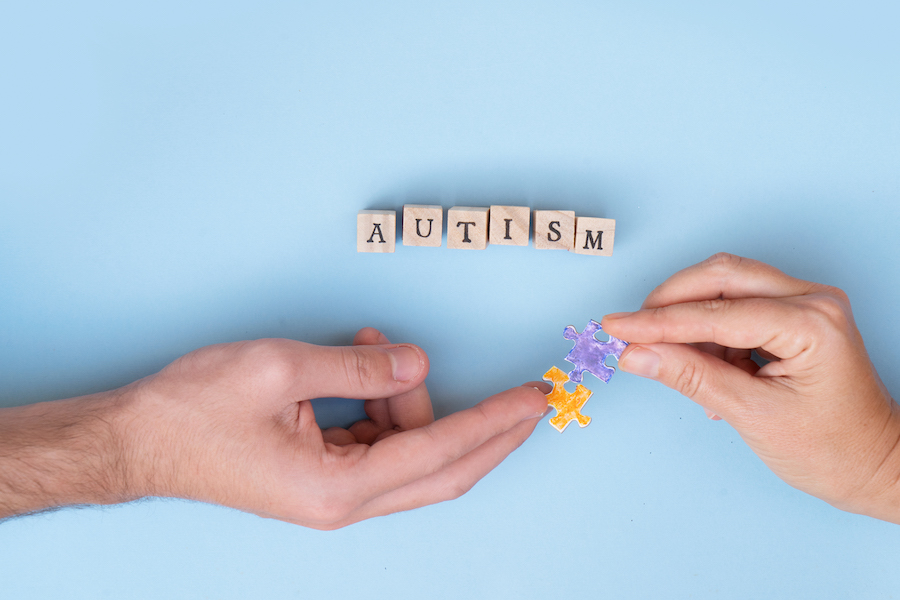College autism support programs & program-sponsored mentoring: What are the differences between enrollees and non-enrollees?
Mapes, Ayla. R., & Cavell, T. A. (2023). Students enrolled in a college autism support program: Comparisons with non-enrollees and use of program-sponsored mentoring. Mentoring & Tutoring: Partnership in Learning. https://doi.org/10.1080/13611267.2023.2164990
Summarized by Ariel Ervin
Notes of Interest:
- Although more and more students with autism spectrum disorder (ASD) are attending college, they still experience notable challenges.
- While some colleges provide autism support programs (ASPs) to assist students with ASD, there is a lack of research that explores which students participate in ASPs and why.
- Additionally, research findings on the mentoring components of ASPs vary.
- This study compared students who were either enrolled or not enrolled in a university ASP based on pre-college academic achievement, demographic characteristics, and self-rated functioning.
- It also evaluated the frequency and quality of mentor-mentee interactions in ASP.
- ASP participants were more likely to be first or second-year male college students, while people who opted out of it were more likely to be female.
- Findings reveal that ASP participants experienced lower levels of depression & anxiety and had higher levels of academic (e.g., engagement), social (e.g., interacting with others), and adaptive (e.g., seeking help) functioning than people who opted out.
- ASP participants continually met with their mentors and had positive interactions with them.
- No evidence indicates that ASP participants have higher parent education and family income than people who opted out.
- Although these findings are preliminary, they provide some insights into a) who is participating in ASPs, b) which people are ASPs overlooking, and c) how students with ASD perceive ASPs and their mentoring services.
- Future studies need to examine different aspects of this subject more in-depth (e.g., Are male students referred to ASPs more frequently than female students with ASD? How are ASP participants specifically benefiting from mentorships?).
Introduction (Reprinted from the Abstract)
Many universities offer autism support programs (ASPs) to support college students with autism spectrum disorder (ASD). Initial studies support the promise of ASPs, but little research has explored which students do and do not enroll, or whether enrollees engage in program-sponsored mentoring. We explored these questions using an online survey and an ex post facto study design. Participants were students (N = 104) at a public university who identified with the university’s center for disability services as having a diagnosis of ASD. We compared students who did and did not enroll in the university’s ASP on a) demographic characteristics, b) pre-college academic achievement, and c) self-rated functioning. Enrollees rated the quality and frequency of interactions with program-sponsored mentors. Compared to ASP non-enrollees, enrollees were more often a) men, b) in their first or second year of college, with c) higher self-reported functioning. Enrollees also reported frequent, high-quality interactions with mentors.
Implications (Reprinted from the Discussion)
This study explored differences between ASP enrollees and non-enrollees and examined enrollees’ perceptions of ASP-sponsored mentoring relationships. Little is known about how students with ASD and their families decide about ASP enrollment, even though these programs are becoming increasingly common. It is also common for these programs to include a mentoring component; however, findings from previous studies raise questions about whether ASP enrollees value or engage in mentoring. Our results indicated several significant differences between ASP enrollees and non-enrollees as well as a tendency for ASP enrollees to view interactions with program mentors as positive and relatively frequent.
Differences between ASP enrollees and non-enrollees
We found ASP enrollees, compared to non-enrollees, were more often men in their first year of college. A group difference in students’ academic classification is to be expected given the emphasis in ASPs on students’ transition into college (e.g. Platos & Pisula, 2019). There is also a tendency for service use among people with ASD to decrease from childhood to adulthood (Platos & Pisula, 2019; Turcotte, Shea, Brusilovskiy, & Nonnemacher, 2016; Vogan, Lake, Tint, Weiss, & Lunsky, 2016). For example, Shattuck, Wagner, Narendork, Sterzing, and Hensley (2011) found the percent of individuals not receiving any services was 6.5% before graduating high school but 39.1% after high school.
To access this article, click here.










